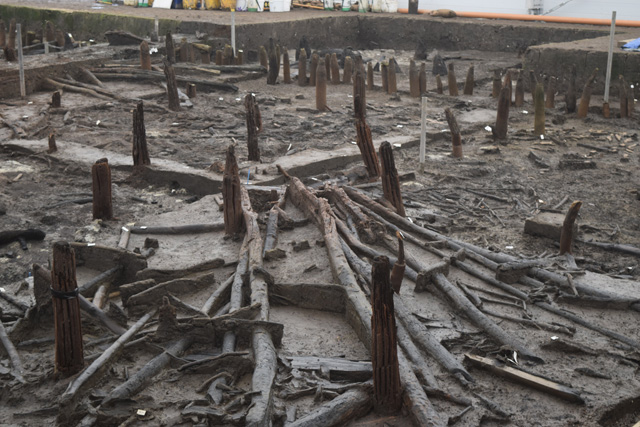The Queen’s Speech (18th May 2016) saw the Government announce their intention to introduce the Neighbourhood Planning and Infrastructure Bill during the new parliamentary session. Reports in the press (notably the Daily Telegraph) raised the prospect that amongst the provisions of the Bill would be changes to the system of pre-commencement planning conditions which would severely and significantly reduce the scope for archaeological investigations in advance of new building work. Coming on the heels of the Housing and Planning Act 2016 which includes provision for permission in principle to be granted for development on brownfield sites (despite the fact that such sites may be highly archaeologically sensitive) , this has caused considerable disquiet amongst the archaeological community in view of its very serious potential impact on the investigation of archaeological sites in advance of development.

At present we do not know exactly what the Bill will contain and preliminary contacts between the relevant Minister and representatives of archaeological organisations have suggested that there may be no intention to change significantly the provisions of the National Planning Policy Framework (NPPF) in respect of archaeology. Unfortunately, given the example of the Housing and Planning Act, RESCUE does not feel that we can rely on assurances from Ministers in this regard and we are therefore calling on our members and supporters to contact their MPs and (in Wales) AMs to express their concern regarding the reported scope of the proposed Bill.
RESCUE is aware of the two petitions that are circulating regarding the Bill but our experience suggests that petitions are not taken with due seriousness by politicians, unlike letters and e-mails from individuals to their representatives. The following notes are intended to assist in the drafting of such letters. It is important that letters reflect the writer’s own views and are not of a type that can be classed as ‘form letters’ as these are regarded by politicians in a similar way to petitions. General information can be found in RESCUE’s document Fighting Back, published on our website. Some of the information that follows is common knowledge but is included here for the sake of providing a comprehensive guide:
- Address your letter to your local MP or assembly member. Copies may also be sent to the relevant Minister but these may be disregarded by the Government. Contact details for individual MPs can be found on a number of websites including http://www.theyworkforyou.com/ and https://www.writetothem.com/
- Keep your letter short and focussed on the matter in hand as anything over one page may be disregarded. If you have other concerns (such as the state of your local Historic Environment Record or your local museum) it is perhaps better to address such matters in separate letters.
- Emphasise your concern at the comments in the national press and the uncertainty that these have raised regarding the Government’s commitment to local and national heritage and ask for a categorical reassurance that the Government is not contemplating any significant changes to the provisions of the NPPF which will diminish the status of archaeological and heritage-related within the planning system.
- If possible include reference to local examples of sites or landscapes which have been investigated prior to development and which have yielded important or spectacular results
If you have the opportunity, speak to your MP at one of his or her constituency surgeries and impress upon him/her that you regard archaeology and the historic environment as a matter of real importance, whether as an educational resource, an asset to tourism and the local economy or as a valuable part of your area’s cultural value.
The following information may be useful in drafting a letter:
The report in the Daily Telegraph can be found here: http://www.telegraph.co.uk/news/2016/05/18/what-to-expect-from-the-queens-speech/
The relevant section reads as follows:
“Planning rules
Requirements that force developers to carry out archaeological and wildlife surveys before starting housing projects are to be swept away in a new Neighbourhood Planning and Infrastructure Bill.
The legislation will ensure that “pre-commencement planning conditions are only imposed by local planning authorities where they are absolutely necessary” to help the Government build one million new homes.
These conditions are typically imposed on builders by planning authorities requiring them to take extra measures to make sure that noise and vibration does not adversely affect neighbours.
Other conditions include having to do archaeological and wildlife surveys before the start of work.
Officials said that “excessive pre-commencement planning conditions can slow down or stop the construction of homes after they have been given planning permission”.
It will “tackle the overuse, and in some cases, misuse of certain planning conditions, and thereby ensure that development, including new housing, can get underway without unnecessary delay”.”
Background notes on the proposed Bill can be found here: https://www.gov.uk/government/uploads/system/uploads/attachment_data/file/524040/Queen_s_Speech_2016_background_notes_.pdf
RESCUE’s initial response can be found here: https://rescue-archaeology.org.uk/2016/05/19/queens-speech-wednesday-18th-may-2016-new-planning-bill-threat-to-archaeology/
The opinion of an experienced barrister can be found here : https://www.linkedin.com/pulse/planning-conditions-archaeology-new-bill-richard-harwood-qc
The response of the Chartered Institute for Archaeology (CIfA) can be found here : http://www.archaeologists.net/sites/default/files/news/CIfA%20Housing%20and%20Planning%20Act%20briefing_0.pdf



